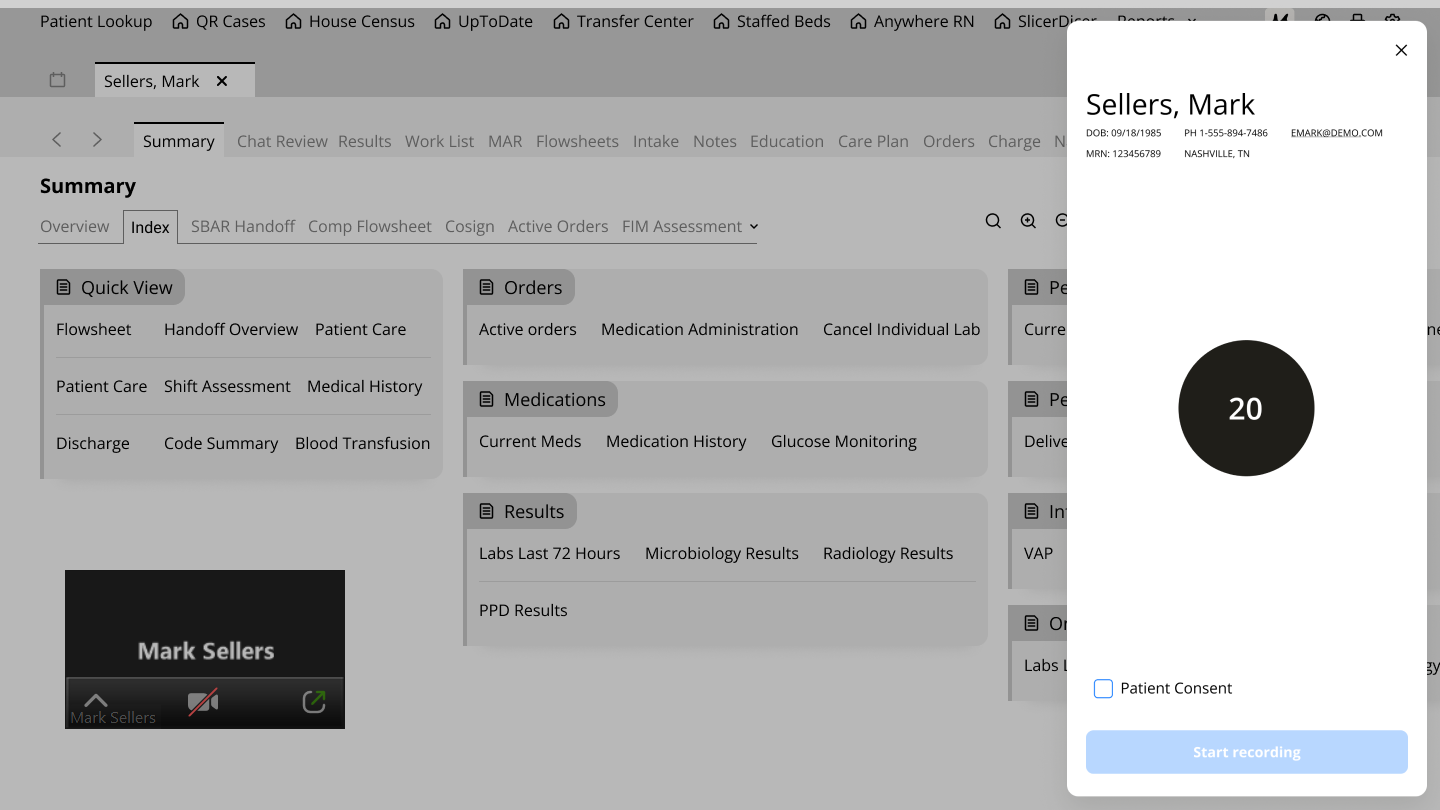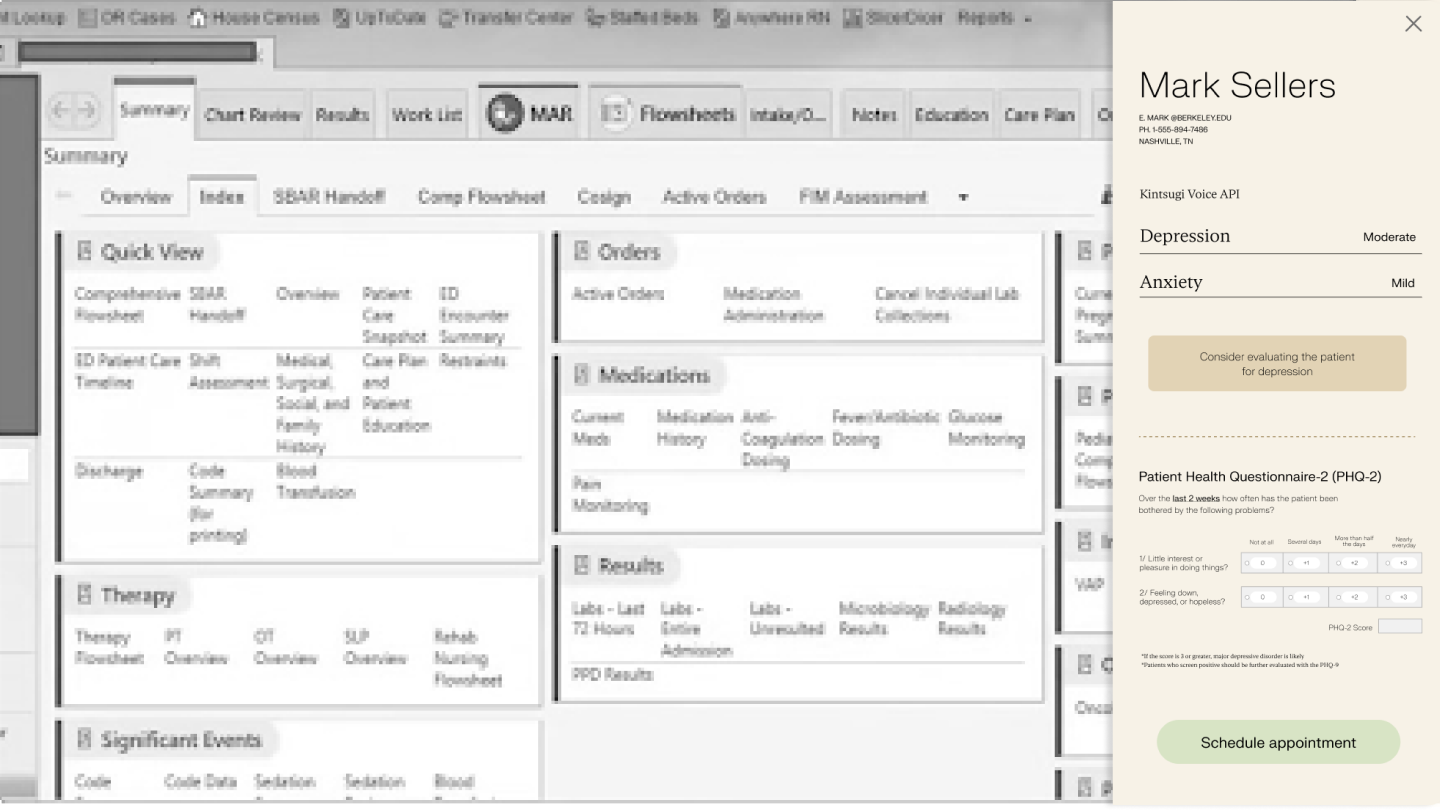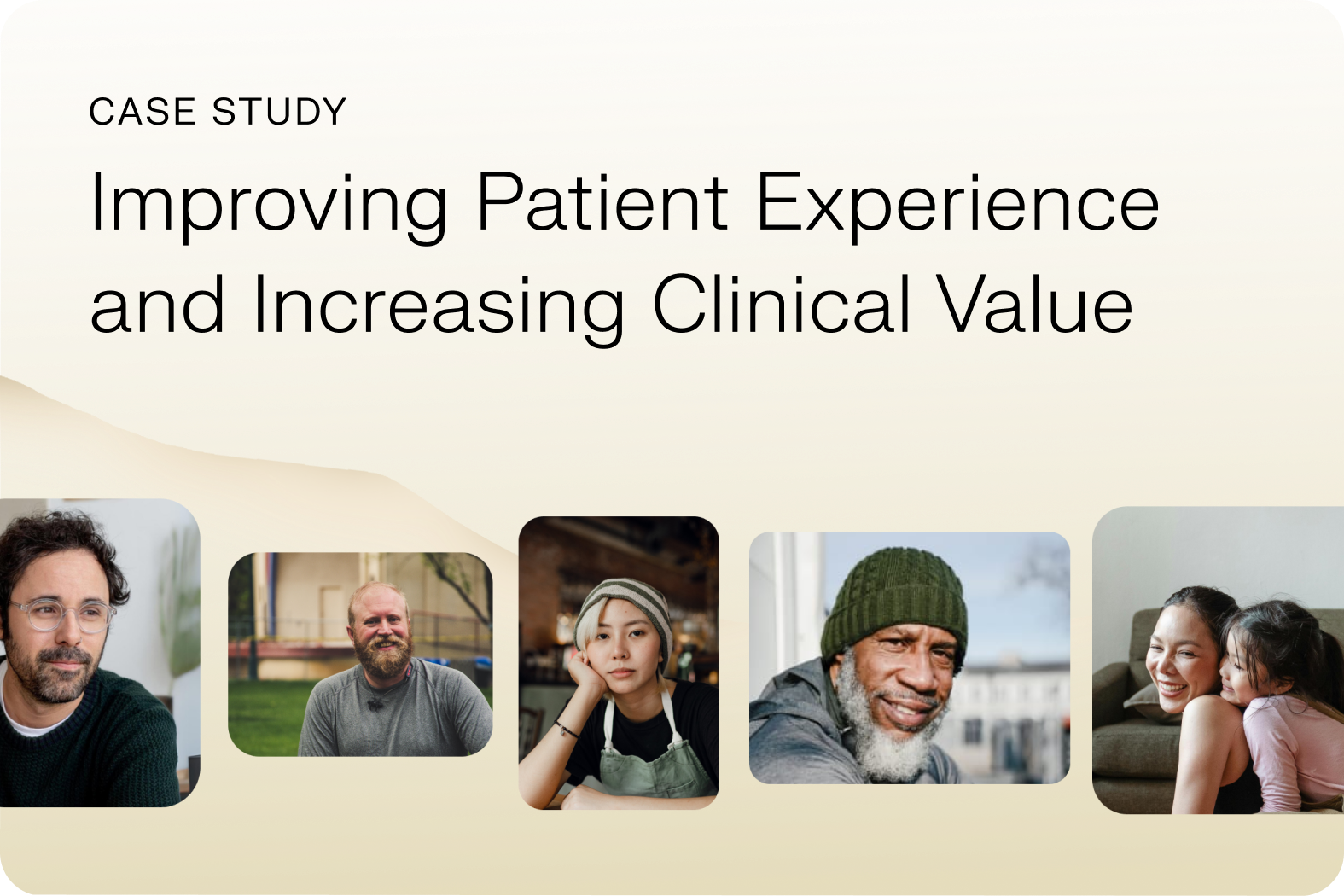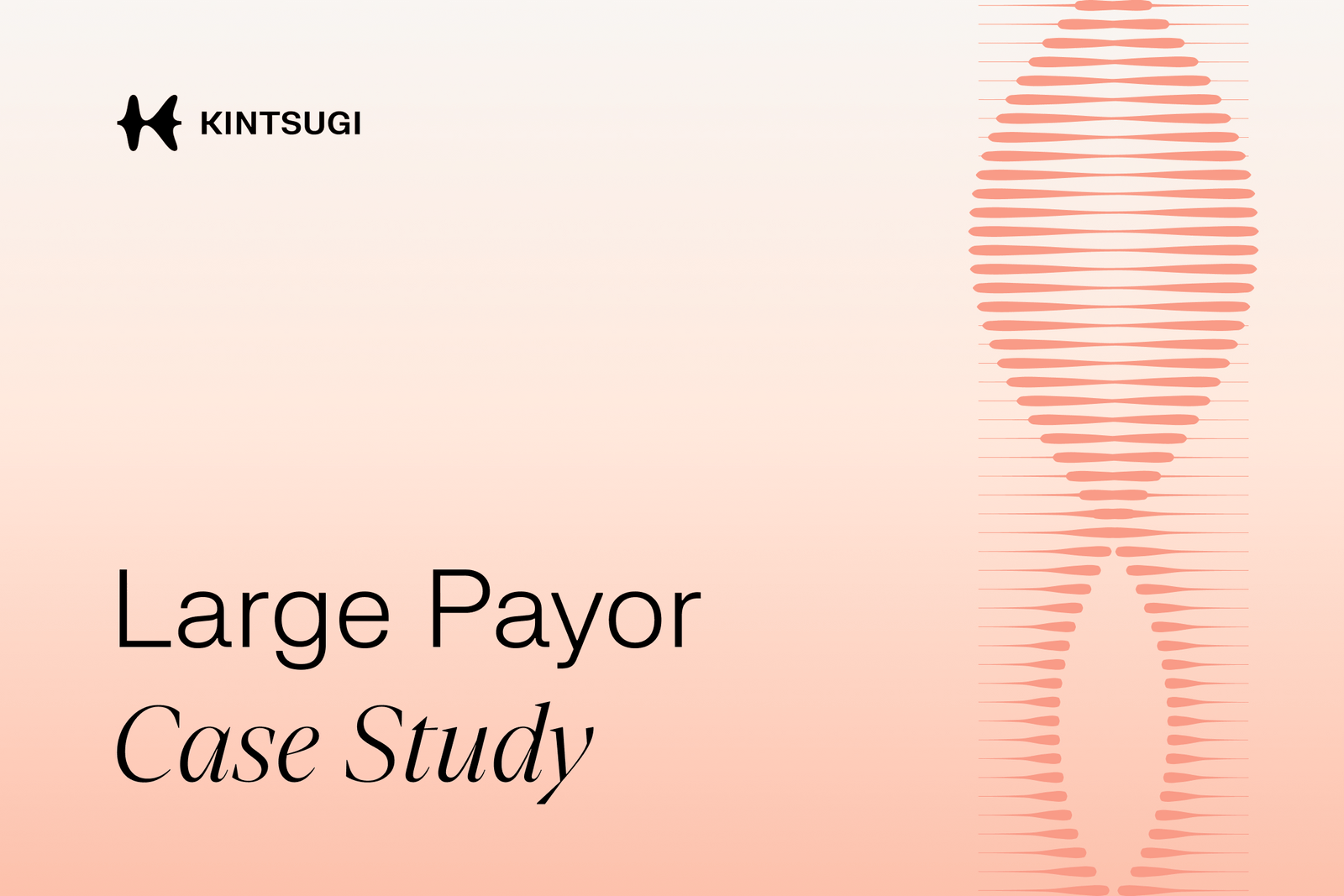
Kintsugi
You see mental health differently when you listen between the lines.
Description
Kintsugi Voice is the leading clinically validated AI-powered voice biomarker software that detects signs and severity of mental health conditions from free form speech. With patient consent, Kintsugi Voice ‘listens’ passively in the background of calls to produce depression stratification scores. Results are stored in the Healthie platform, reducing administrative work and enabling clinicians to spend more time with patients. Take your Healthie experience to the next level with Kintsugi.
Features
Passive Identification
Our vocal biomarker technology analyzes how you talk--pitch, intonation, tone, pauses--to identify signs of depression and anxiety.
It doesn't matter what is being said, so there's no need to ask or answer uncomfortable questions.
It is language agnostic and does not utilize patient-sensitive information. Works anywhere, with anyone.
It doesn't matter what is being said, so there's no need to ask or answer uncomfortable questions.
It is language agnostic and does not utilize patient-sensitive information. Works anywhere, with anyone.
Seamless Stratification
Flags signs of depression and anxiety in real-time, improving speed to triage.
Works with hundreds of workflows, from retrospective to live in-call scoring.
Provides additional signals to aid clinicians, especially in telehealth settings.
Works with hundreds of workflows, from retrospective to live in-call scoring.
Provides additional signals to aid clinicians, especially in telehealth settings.
Proactive Care Management
We show you which level of care patients need in real-time helping augment clinical staff and care-management teams and improving outcomes.
We can provide scheduling options to behavioral health resources -- yours or ours -- for more severe cases.
Patients can supplement care with the Kintsugi App.
We can provide scheduling options to behavioral health resources -- yours or ours -- for more severe cases.
Patients can supplement care with the Kintsugi App.
Media
Next Steps
Create a Kintsugi Account
The Kintsugi API uses a unique API key that is provisioned specifically for your organization to authenticate your API requests. KV surfaces an invalid request error when you do not include an API key and an authentication error when the key is invalid.
To be provisioned with an API key, Kintsugi customers should send an email to [email protected] with the name of your organization, the email that needs access, and mention that you are a Healthie customer.
Once approved, we will whitelist your email and send an activation token for your organization.
Once approved, we will whitelist your email and send an activation token for your organization.
Enable Kintsugi Integration with Healthie
Once you’ve enabled a Kintsugi account, please complete this Healthie Harbor form for your Kintsugi API Key.
Connect Healthie Harbor and Kintsugi Accounts
Log in to your Healthie account and click Documents in the left navigation sidebar. The Healthie Support Engineering team will share the Kintsugi API Key to your Documents section, which you can then share with Kintsugi. Once you do this, both your accounts will be connected.
Complete patient consent and audio capture directly from your client page in Healthie, and all predictions and post-visit results can be viewed and stored in Healthie automatically.
Complete patient consent and audio capture directly from your client page in Healthie, and all predictions and post-visit results can be viewed and stored in Healthie automatically.
Testimonials
Resources
FAQ
- Kintsugi is developing voice biomarker software to detect signs of clinical depression and anxiety from short clips of free-form speech.
- Kintsugi uses a combination of deep learning and signal processing techniques to understand the common patterns associated with clinical depression and anxiety which are different from temporary feelings of sadness or anger, etc.
- In the early part of Kintsugi, we developed a consumer voice journaling application to solve the challenge of not being able to always speak with a therapist and having self-tools to alleviate stress, anxiety, and depression. The consumer-facing app has over 200K downloads and users in over 250 international cities which has given us a data set hundreds of orders larger than the largest publicly available DAIC-WOZ dataset.
- We trained our models on a large proprietary dataset with self-annotated labels of depression and anxiety. In addition, we capture additional datasets through our clinical, academic, and commercial works in market through IRB-approved studies. We validated our model using mental health professionals with 7 years+ experience and compared the binary results of their diagnosis with our model’s performance. We are nearly 2x as performant as primary care doctors who today administer 70% of antidepressant scripts.
- We use 100 different muscles in our chest, neck, and throat to push the sound out of our mouth as voice
- Voice biomarkers have been studied for almost 100 years starting with Emil Krapelin’s work that identified certain features of the voice correlated with depression
- In the last decade, the acceleration of deep learning models and the availability and cost of compute has allowed us to mathematically model patterns in large data sets
- Humans are able to hear up to 20 kHz and in telehealth calls, these are held in voice-over IP calls where the transmission of audio fidelity is 44.1 kHz, more than double the data per every second.
- For therapists who have had a few hundred clients over their careers, a machine-learning model can ingest tens of thousands of labeled examples to develop a mathematical representation of what depression and anxiety look like
- Classical features like pitch, prosody, and slowness of thought (psychomotor retardation and agitation) have been shown to be evident in depressed and anxious speaking across East and West clinical studies
- You can trick the system, but the question is when you are having a regular conversation with a doctor, why would you speak differently?
- It is important to note that our models are looking at underlying characteristics of depression as evidenced by physiological characteristics which are different from temporary feelings of sadness, anger, happiness, etc.






.png.png)
.png.png)




